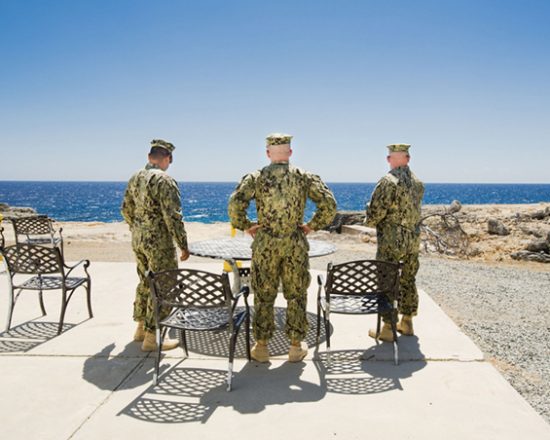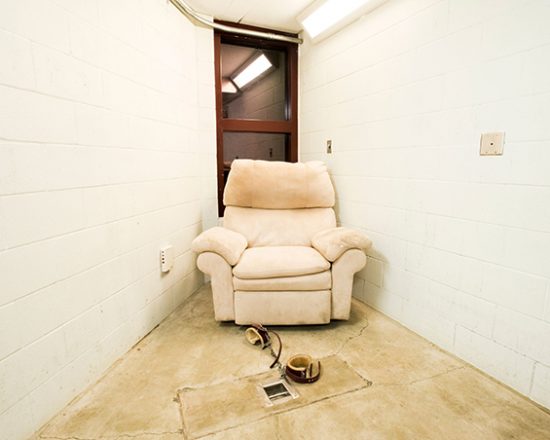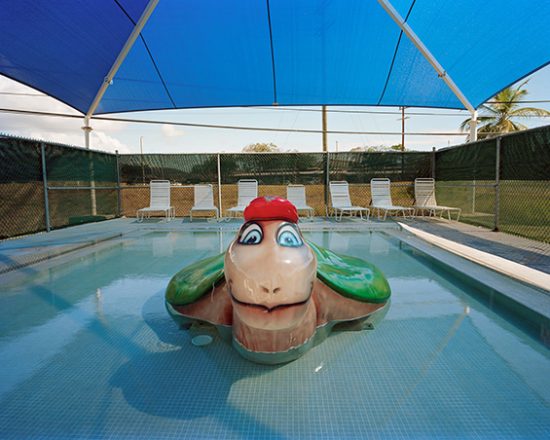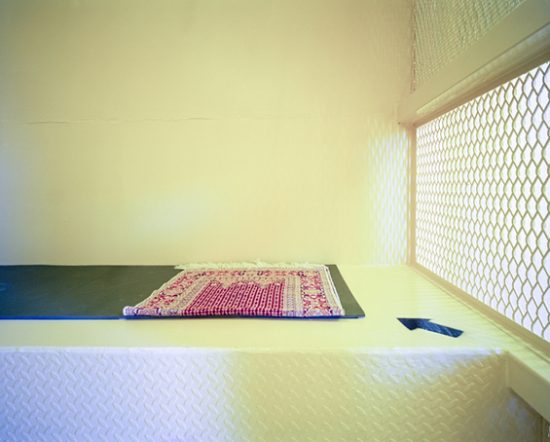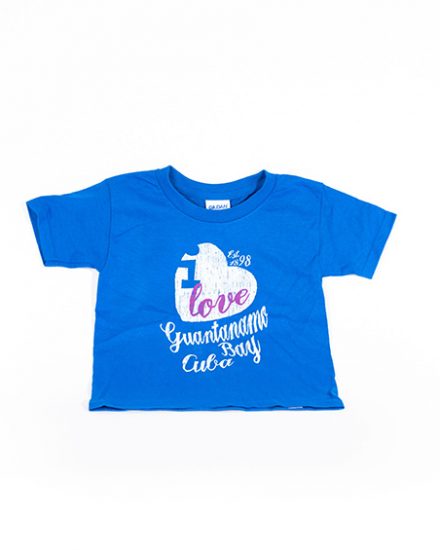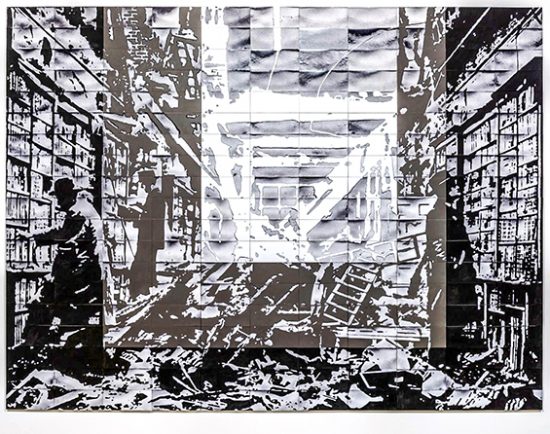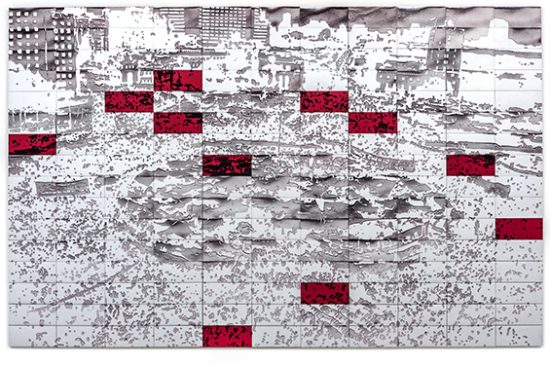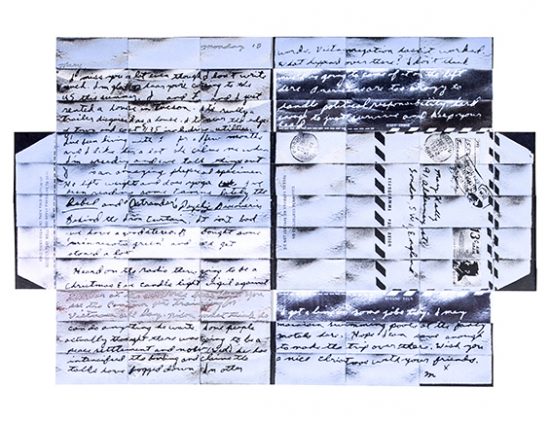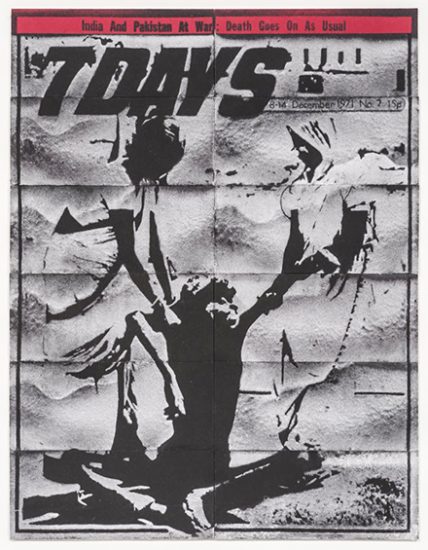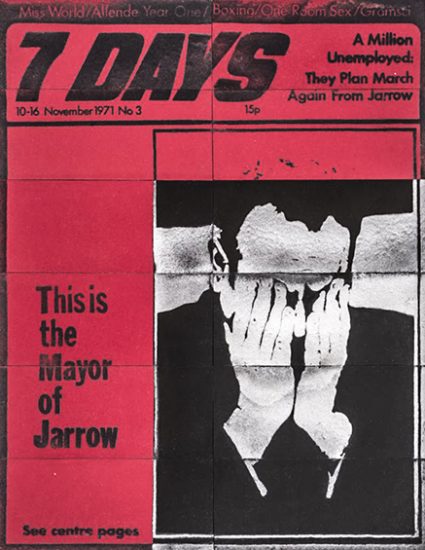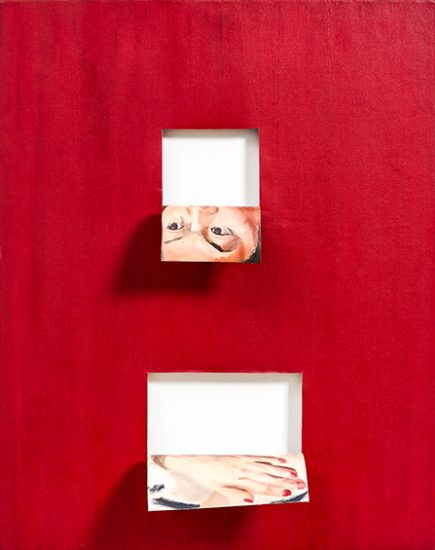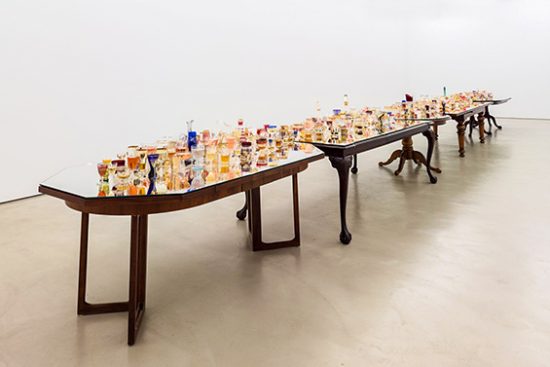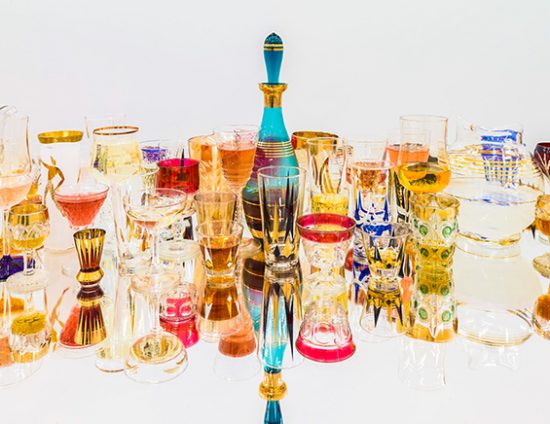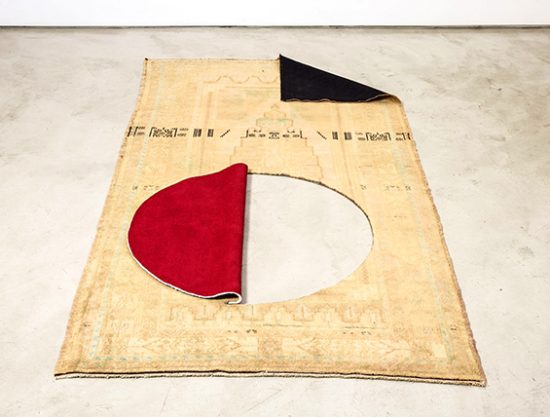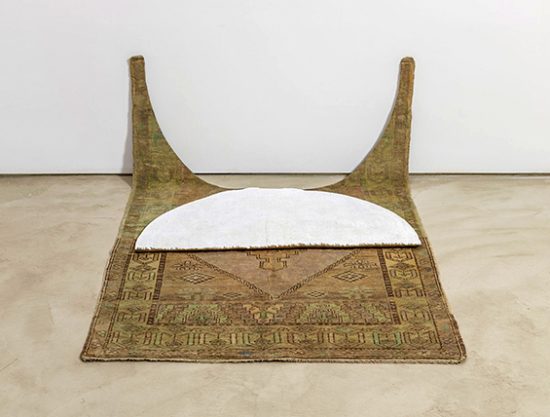Debi Cornwall, Smoke Break, Camp America, 2014
Debi Cornwall, Compliant Detainee Media Room, Camp 5, 2014
Debi Cornwall, Kiddie Pool, 2015
Debi Cornwall, Prayer Rug with Arrow to Mecca, 2015
Debi Cornwall, Toddler Tee ($7.99), 2015
A probe into the U.S. Naval Station in Cuba known as “Gitmo,” Debi Cornwall presents 29 large-scale colour photographs at the Steven Kasher Gallery documenting residential and leisure spaces of prisoners and guards, the commodification of American military power through Gitmo’s gift-shop souvenirs, and the disorienting juxtaposition it creates as Gitmo is the epicentre of enhanced interrogation techniques of enemy combatants. Cornwall was escorted at all times and adhered to a 12-page list of rules, and had to develop her film every day in the presence of military censors.
Mary Kelly, Circa 1940, 2016
Mary Kelly, Circa 2011, 2016
Mary Kelly, Tucson 1972, 2017
Mary Kelly, 7 Days, 8-14 December 1971, 2016
Mary Kelly, 7 Days, 10-16 November 1971, 2016
At Mitchell-Innes & Nash, Mary Kelly’s The Practical Past, a project-based work deeply influenced by the events of 1968, combines large-scale works that reference iconic representations of historical moments, and a more pragmatic look at the everyday. Kelly works with material process and duration creating the works out of compressed lint, which she has worked with for over two decades. Following a fastidious process of casting pieces in the filter screen of a dryer, Kelly sees “the material residue as a collective memory in the aftermath of an event.”
Valeska Soares, Doubleface (Alizarin Crimson), 2017
Valeska Soares, Epilogue, 2017
Valeska Soares, Epilogue, 2017 (detail)
Valeska Soares, Ground (VII), 2017
Valeska Soares, Ground (VIII), 2017
Valeska Soares debuts at Alexander Gray with a series of appropriated and modified vintage oil portraits. Soares re-stretches the canvases, paints the verso, cuts and folds over a piece to reveal a portion of the original painting. Soares wants to “rescue the sitters from obscurity,” while creating a dichotomy between abstraction and figuration. In tandem with these works are re-worked rugs that draw on historic connotations as objects of religious practice, decorations, and non-monetary currency. A large-scale installation aims to evoke “memories and traces of fleeting moments and spaces.”
